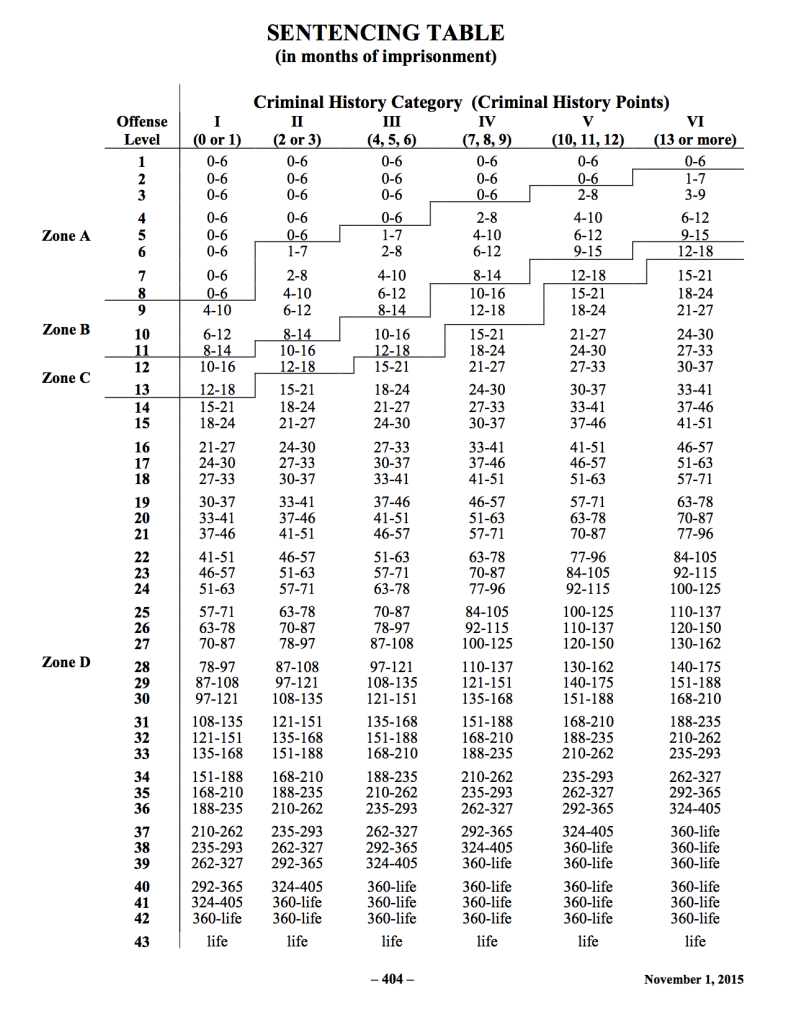What Are the Federal Sentencing Guidelines?
The federal sentencing guidelines, formally known as the United States Sentencing Guidelines, are a set of rules designed to govern how sentences are imposed in federal criminal cases. In every criminal case (except for some minor offenses), the sentencing guidelines will suggest a range of imprisonment that the judge may impose. The range that applies in a given case is determined by the defendant’s criminal history and the facts of the case, calculated according to rules set forth in the guidelines and the federal sentencing table.
(See below, a picture of the Federal Sentencing Table: the rows correspond to different “offense levels,” which are calculated according to the characteristics of the crime, such as the amount of money stolen, or quantity of drugs sold, etc. The columns correspond to the “criminal history” of the defendant, based roughly on the number of prior convictions.)
How Do Federal Sentencing Guidelines Work?
For each type of federal offense, the federal sentencing guidelines establish a base offense level. Depending on the facts and circumstances of the offense, these points may be either increased or decreased by certain enhancements or reductions. The guidelines can be complex and confusing. The probation office will conduct its own investigation and submit its own guidelines calculations to the court. However, these calculations are frequently wrong and, if not challenged, can result in a longer sentence. An experienced federal sentencing attorney should carefully review the probation office’s guidelines calculations, and raise objections before the sentencing hearing. Because the sentencing guidelines range is an important component of federal sentencing, raising these objections are imperative to a favorable outcome at sentencing.
As explained here, the guidelines are no longer binding on the federal courts. Sentencing judges are free to impose sentences above or below the guidelines. In practice, however, any federal sentencing attorney will agree that the guidelines are tremendously influential in the sentencing process.
Work with a Skilled Federal Sentencing Attorney
In federal sentencing, one of the most important aspects to obtaining a favorable outcome is beginning with the lowest guidelines range possible. The process starts before the sentencing hearing. In fact, it can begin before a defendant is even charged with a crime. For example, when a person is under investigation for a crime and the attorney determines that the evidence is already overwhelming, he can begin plea negotiations to limit the “relevant conduct” for which the defendant can be held responsible under the guidelines, apply various downward guidelines adjustments, or agree to a defendant’s criminal history.
A skilled federal sentencing lawyer must carefully review the case to put the client in the best possible position in terms of the sentencing guidelines.
If you are facing federal criminal charges, we can offer you a free consultation to discuss how the federal sentencing guidelines may apply to your case.

